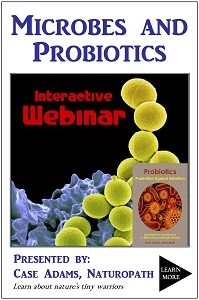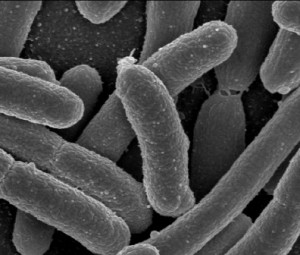Probiotics Improve Cholesterol Levels
Cholesterol isn’t just about what we eat. It also has to do with the microbes in our guts.
Research from Montreal’s McGill University School of Medicine has confirmed that probiotics help maintain healthy cholesterol levels, and particular probiotic species can correct poor cholesterol.
After a handful of previous studies with animals and humans found multiple probiotics help maintain healthy cholesterol levels, this research focused on a particular species: Lactobacillus reuteri NCIMB 30242.
In this article
Large probiotic cholesterol-lowering effect
In a multi-center study that was randomized, double-blind and placebo-controlled, the McGill University researchers tested 127 adults who took either the Lactobacillus reuteri in capsules or a placebo over a nine-week period. The researchers tested cholesterol levels among all the subjects prior to and following the treatment period.
The researchers found that the probiotic reduced low-density lipoprotein cholesterol (LDL-c) by nearly 12%, and total cholesterol by 9%. Important cholesterol ratios such as the LDL/HDL and ApoB/ApoA ratios went down by 13% (these ratios show a correction in relative cholesterol levels and reduced artery inflammation).
The probiotic group also had significantly lower C-reactive protein (CRP) levels, and significantly lower fibrinogen levels compared to the non-probiotic group. CRP and fibrinogen are markers that also illustrate inflammation among the arteries. The fact that the probiotics reduced these markers means probiotics can have a corrective influence not only upon cholesterol, but also on atherosclerosis, a leading form of heart disease.
The study also found deconjugated bile acids were increased significantly in the probiotic group. Along with this, the probiotic reduced the subjects’ intestinal absorption of campesterol by 41%, sitosterol by 34% and stigmasterol by 41%.
Plant sterols and cholesterol
This is significant because these three plant sterols actively inhibit cholesterol absorption through the intestines – which often results in higher LDL-c levels. When these plant sterols are retained in the intestines they actively help prevent high cholesterol levels. But when they are released into the bloodstream, they mimic and may also convert into oxidized cholesterol-like molecules, which can damage blood vessel walls.
For years, plant fiber (which are high in sterols) has been associated with reducing cholesterol. Recent research has determined that one of the characteristics of most plant fibers is that they are prebiotics – they feed our intestinal probiotics. So now that we know that probiotics help reduce cholesterol, we can understand that fiber acts in two ways: It releases sterols that inhibit the absorption of cholesterol into the bloodstream; and it feeds our probiotic bacteria which helps break down cholesterol within our bile.
As indicated by the increase in deconjugated bile salts, one of the mechanisms used by probiotics to reduce cholesterol appears related to the break down of bile. When bile is deconjugated, cholesterol is broken down and wasted through the feces. As the deconjugated bile is taken up by the liver again, it needs to be reconjugated with cholesterol, thereby reducing the total cholesterol availability.
Multiple species help cholesterol
A variety of probiotics have shown this tendency of reducing cholesterol and/or maintaining good cholesterol levels.
Researchers from China’s Jiangnan University reviewed the research on probiotics and cholesterol and found that of 13 human studies among 485 people, probiotic supplementation resulted in an average reduction of 6.4 mg/dl in total cholesterol and 4.9 mg/dl in reduced LDL-cholesterol. The studies also showed that probiotics reduced triglycerides by an average of nearly 4 mg/dl.

REFERENCES:
Jones ML, Martoni CJ, Prakash S. Cholesterol lowering by Lactobacillus reuteri NCIMB 30242: a randomized controlled trial. Eur J Clin Nutr. 2012 Sep 19.
Guo Z, Liu XM, Zhang QX, Shen Z, Tian FW, Zhang H, Sun ZH, Zhang HP, Chen W. Influence of consumption of probiotics on the plasma lipid profile: a meta-analysis of randomised controlled trials. Nutr Metab Cardiovasc Dis. 2011 Nov;21(11):844-50.
Kumar M, Nagpal R, Kumar R, Hemalatha R, Verma V, Kumar A, Chakraborty C, Singh B, Marotta F, Jain S, Yadav H. Cholesterol-lowering probiotics as potential biotherapeutics for metabolic diseases. Exp Diabetes Res. 2012;2012:902917.
Brownawell AM, Caers W, Gibson GR, Kendall CW, Lewis KD, Ringel Y, Slavin JL. Prebiotics and the health benefits of fiber: current regulatory status, future research, and goals. J. Nutr. 2012 May; 142(5):962-74.















